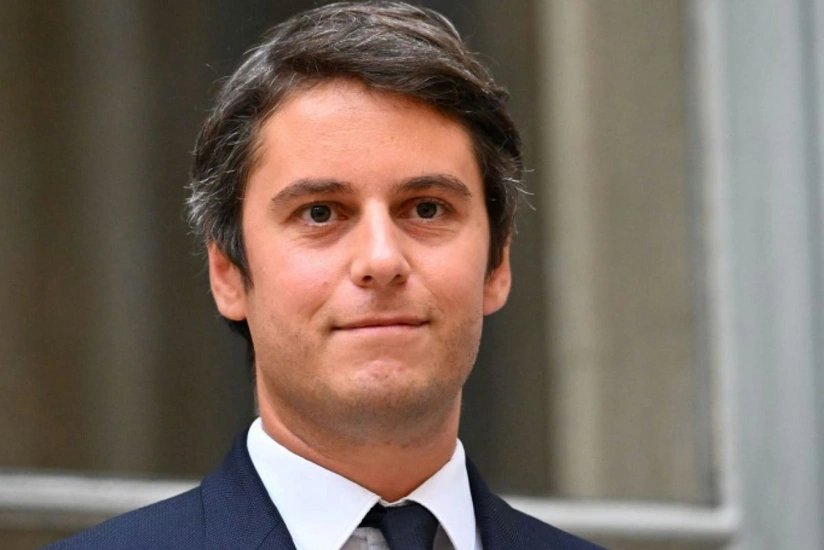Gabriel Attal’s difficult first month
- 17 February, 2024
- 07:30

Since announcing the full composition of his government on February 8, the Prime Minister has endeavored to make his policies known, and to this end has listed a number of "emergencies" in various media - youth, housing, agriculture, health - going so far as to speak of a "springtime of emergencies" for the coming months.
In the wake of several open crises such as an agricultural movement’s demands, the rise of bullying in the French schools, that has been classified as a national problem now, the scandal involving the former minister of education Oudea-Castera, the divergence of opinions and further conflict between the government and the environmental groups, as well as the crisis in the Corsica, the concerns about prime minister’s actions and attitude are growing.
Invited to the "Grand Jury RTL-Le Figaro-M6-Paris Première", the RN vice-president of the National Assembly, Sébastien Chenu judged the Prime Minister "not up to the challenge", accusing him of wanting to "erase our rurality".
After a week of debates and arguments between the government and the agriculture professionals, the head of government nevertheless decided to step up his action in Haute-Garonne to try to put out the fire. "Gabriel Attal has responded to 1% of the problem, since he had one dam out of 100 lifted," retorted the RN deputy from Nord, guest on the "Grand Jury RTL-Le Figaro-M6-Paris Première". "These responses are underpinned by political acts that are in complete contradiction with farmers' demands", he detailed, deeming the new Prime Minister "not up to" the challenges. He went on to praise the "hard-working France", caught between the Macronie who wants to "erase our rurality" and the ecologists who "hate our agriculture".
In the face of the problems we encountered, Prime Minister Attal unveiled his timetable and roadmap in Le Parisien, after holding a morning meeting at Matignon with his entire government, which has been at full strength since last Thursday.
"There will be no time to waste for action". Repeating and clarifying the main points of his general policy statement, as he had already done on France 2, the Prime Minister outlined his action over the course of the seasons: "Starting this spring, we will deal with a number of urgent matters", followed by a "summer of social progress" and an "autumn of work".
Confronted with an agricultural crisis as soon as he took office, he announced that he would receive farmers' representatives again early this week. On the economic front, he promised to "lift one by one the shackles that restrain the French” and announced that a draft "2 Macron law" would be presented before the summer "to free up economic activity, growth and industrial development".
"We are really in action,” the spokeswoman of the government Prisca Thevenot asserted at the end of the seminar, assuring that Mr. Attal's "approach" consists of "listening, dialoguing and also following the decisions that have been put in place." "We must now be sure [that the measures] are actually in the daily lives of the French [and say] transparently, honestly, but responsibly, where it has worked and where we must be able to review the copy, if necessary," the spokeswoman said.
Yet the listening didn’t last long. As the head of government faced his first motion of censure, Prime Minister Attal was photographed showing a picture of a dog to several of his colleagues in the National Assembly on Monday February 5, while his colleagues were speaking on the crises the government is believed to be mishandling.
During this sequence, the Prime Minister is rebuffed by the president of the Socialist group in the National Assembly, Boris Vallaud. "I see you're laughing at this moment (...) all in the indifference of your lack of listening," he snaps, looking at the head of government, clearly not paying attention.
"While Boris Vallaud is talking about deaths in the workplace and the working conditions of our fellow citizens, Gabriel Attal is showing his ministers a photo of his dog. Incredible," lamented Socialist MP Inaki Echaniz on his X account.
In the wake of the uncertainties and the difficulties the new French government faces, Attal presented his desire and beliefs to work together with all the opposition groups, including far right RN and far left LFI.
Breaking with the line taken by Élisabeth Borne, who last spring saw the Rassemblement National as a political movement "heir to Pétain", Gabriel Attal starts from the following premise: if there is "a problem of respect for the Republic, a party can be banned". Especially since "behind these parliamentarians, even if we don't agree with these parties, there are millions of French people who voted." "It's not respecting them to say 'because you're from La France Insoumise or the RN, we're not going to listen to or look at the amendment you're proposing'", insisted Gabriel Attal.
Such a change of an approach is consistent with the difficulties the consecutive French governments are facing. The need to rally the voters behinds the government requires new ways and techniques, which sometimes can be contradictory or even hypocritical and still Attal’s government has a lot of work to do to convince anyone, it is “listening”.
Jamal Mustafayev
